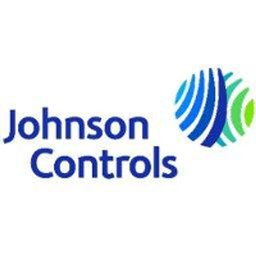ESSENTIAL FUNCTIONS OF THE CLASS (May not include all duties performed.)
Performs the following leader work:
On a regularly recurring basis, leads personnel in HVAC task work while supporting their acquisition, or enhancement, of technical knowledge and skill on-the-job (OJT). Provides ‘targeted’ OJT and ‘opportunity’ OJT. Leads personnel, as assigned, in trainee/developmental level HVAC work to advanced level HVAC work, from routine and non-routine maintenance, diagnostics and emergency repairs of commonplace HVAC equipment and systems to journey, or higher, level diagnostics and modifications of rare or complex HVAC equipment and systems of APS. (Some equipment in use at APS may be rare in most workplaces and some systems in use at APS may be uniquely configured for APS.)
As a work leader, helps ensure safety of the work area and ensures that others, especially but not limited to those in one’s charge for the period of assignment, work safely.
Confers with the supervisor to learn the nature of work assignments and training needs, and to advise or consult on crew assignments, equipment to be used, and materials to be obtained or purchased. As assigned, supports the supervisor in assessing knowledge/skills of lower grade HVAC Mechanics and in identifying OJT and classroom training responses for knowledge/skill building purposes. (The range of knowledge/skill building OJT led, and classroom training provided may include introduction/acquisition, refresher/remedial, and advanced/superior, and typically varies based on progress in individual learning, introduction of new equipment/systems, advances in technology, including ‘green technology’, and other factors.)
Gives written or oral instructions, demonstrates techniques, and otherwise trains and coaches – some training/coaching may be accomplished by radio or phone; provides special instructions; and performs related training-communication-information functions, all as deemed necessary, or as required, to accomplish task work or to facilitate learning.
Prepares or collects and maintains or forwards associated documentation, such as attendance sheets and training logs. As assigned, completes formal SOJT (supervised OJT) job books to track specific items of individual learning and task work accomplishments in knowledge/skill building-oriented assignments and in daily, or as-required, tasks as they arise (which may facilitate learning, but are not inherently designed for learning).
Performs related leader work.
Performs the following task work:
Prepares for assignments by reviewing work orders and maintenance schedules, conferring with the supervisor, etc. Uses computerized system to order materials and equipment and maintains stock and tools on service truck. Requisitions parts and materials from vendors and supply houses in accordance with procedures.
Maintains and troubleshoots reciprocating and centrifugal chillers, cooling towers, boiler plants, gas piping, hot water, chilled water and steam piping, direct expansion systems, fans, starters, HVAC pneumatic and electric controls, electrostatic filters, condensate drains, installs new
motors, pumps, compressors and other parts, as necessary; makes initial settings and final adjustments of heating and air conditioning systems, and modifies existing installations to obtain required results; and performs related tasks, such as: rebuilds hot and chilled water valves by grinding seats and calibrating to manufacturer’s specifications, replaces or repairs timers, electrical switches, solenoids and electrical controls, replaces seals on pumps and adjusts to close tolerances for water-tight fits, takes readings, lubricates parts, tightens/replaces belts, replaces air filters, resets controls on electronic filters, lubricates parts, cleans coils, cuts, threads and replaces or reroutes piping, and installs ductwork and diffusers.
As assigned, facilitates work of County building inspectors and Fire Department inspectors on periodic inspections, such as annual dismantling of components of boilers.
May dig up and replace steam and hot water lines.
As assigned, inspects routine maintenance work performed by lower grade personnel and special program personnel, such as summer student workers and community service workers. Provides on-the-spot corrections and training, as necessary.
Recovers refrigerant from all types of equipment; repairs refrigerant leaks, as needed, and recharges units.
Maintains various ventilation systems, such as roof heated make-up air unit, heaters, kitchen and shop ventilation, and restrooms and building exhausts.
Troubleshoots VFDs on water pumps and air-handling units; repairs water pumps, seals, bearings, and couplings; and starts, stops, adjusts, and modifies equipment parameters from the central computer that controls the mechanical equipment.
Monitors performance of equipment/systems. Adjusts controls manually or via energy management computer to keep buildings, offices, and classrooms at preset comfort ranges for heating and cooling.
Keeps records and makes reports of work accomplished (such as completion of work orders) and materials used (such as filters, lubricants, refrigerants, special chemicals, and cleaning solvents). Fills out Material Safety Data Sheets (MSDS).
Interacts with the school principal, the building manager, and others in a customer service- oriented manner, proactively (initiates contact) as well as reactively (responds to customer service calls/work orders). Investigates heating and cooling complaints (from system failure to personal thermal discomfort). Assesses HVAC system performance. As appropriate, calculates heat loads using specialized software and considering nature, occupancy and use of facility and other factors. If occupant thermal discomfort exists in a building with a properly sized and balanced HVAC system, may fine tune adjustments to supply registers to satisfy all occupants. Coordinates with in-house or contractor support, in accordance with procedures.
Stays abreast of technological advances and other developments affecting APS HVAC equipment and systems, including but not limited to advances in materials, controls or ‘green
technology’ that may be applied to APS without undue cost, signs that equipment needs replacement before the end of its predicted useful life, and indications that deferred maintenance is adversely impacting system utility/performance. Notes impact and brings information forward to the supervisor, with or without recommendations.
As opportunities arise in the course of daily work, recommends (based on observations and research) improvements in preventive and predictive maintenance and in practical use of advances in technology (including ‘green technology’).
Uses and maintains (at the operator level of maintenance) hand and power tools, including volt, ohm and amperage meters, temperature and humidity test equipment, manifold gauges, air flow, air pressure and carbon dioxide meters, multi-meters, wrenches, screw drivers, hammers, metal cutters, calipers, saws, punches, grinders, blasters, pipe threaders, computers, testing kits, and the torch for cutting, brazing and soldering.
Drives a vehicle to and from work locations, performs operator maintenance on vehicle and keeps it in orderly condition.
Maintains phone contact with supervisor/base and customers, keeping them informed.
Uses a computer and telecommunications devices for various operational functions – planning, scheduling, communicating, (light) word processing, researching (Internet), etc. Uses specialized software to calculate heat loss and gain, track HVAC performance, troubleshoot problems, etc.
Handles refrigerants and hazardous materials (such as fuel and chemicals) in accordance with regulations and other requirements. Works according to County building/Fire codes. Works safely in accordance with safety procedures.
Sets up and cleans up worksite. Performs ‘shop keeping’ tasks common to the trade, and as assigned.
Performs HVAC work at multiple sites, as assigned, and performs duties directly related to multi-site service, as required, or assigned.
May act as, or for, the Assistant Supervisor, as assigned, in his/her absence.
May check the maintenance work of lower grade personnel and special program employees, such as summer student workers and community service workers.








